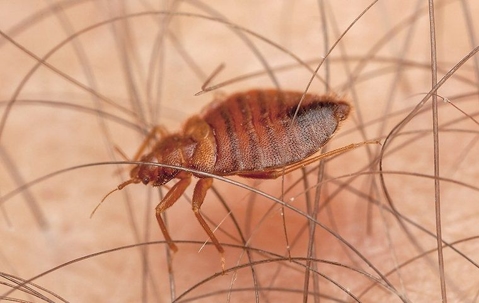Specialist Kings Pest Control Services Cincinnati OH
A Malfunction of the Various Kinds Of Parasite Control Solutions
In the world of parasite control, a plethora of methods exist to resolve and combat the existence of undesirable animals. From the traditional use chemical pesticides to much more ingenious biological control services, each strategy uses distinct benefits and limitations. As we browse via the varied landscape of parasite control remedies, understanding the ins and outs of each approach becomes extremely important in figuring out the most efficient training course of activity. Keep tuned as we explore the nuanced world of bug control techniques and find just how each type plays an one-of-a-kind role in guarding our atmospheres.
Chemical Pesticides
Chemical chemicals are generally made use of in pest control to successfully eliminate a vast array of pests and other parasites. These pesticides function by targeting the anxious system of the parasites, disrupting their regular features, and ultimately leading to their death. Making use of chemical pesticides has actually been a staple in the insect control market for years because of their efficiency and fast results.

Nonetheless, it is necessary to make use of chemical pesticides with care due to their prospective harmful impacts on the setting and non-target species. Incorrect application or overuse of these chemicals can result in air pollution, injury to helpful pests, and resistance growth in insect populations. Therefore, it is important to adhere to safety and security guidelines and policies when utilizing chemical pesticides for insect control.
Biological Control Approaches
Considering the possible ecological effects and dangers linked with chemical pesticides, organic control techniques offer a more sustainable method to handling parasite populaces. Biological control involves the usage of all-natural enemies, such as killers, microorganisms, and bloodsuckers, to suppress parasite populations. This method is typically more targeted, influencing just the certain insect species while decreasing damage to valuable pests, human beings, and the atmosphere.

Once developed, natural enemies can aid control pest populaces constantly without the need for duplicated applications of chemicals. In addition, organic control is often much more cost-efficient and can help lower chemical resistance in parasite populaces over time.

Mechanical Bug Control
Mechanical parasite control involves the physical adjustment or removal of parasites to manage their populations properly. One typical example of mechanical bug control is making use of catches to capture rodents or pests.
Another mechanical method is making use of barriers such as screens, nets, or fences to block parasites from getting in details locations. By physically stopping pests from accessing a place, the likelihood of infestations or damages can be significantly reduced. In addition, hands-on methods like handpicking bugs off plants or frameworks can be reliable for smaller-scale infestations.
While mechanical insect control methods can be labor-intensive, they offer a non-chemical Learn More alternative that can be lasting and environmentally friendly. By targeting bugs straight, mechanical control strategies can aid maintain bug populations in check without counting on pesticides.
All-natural Remedies
Using natural treatments for pest control offers a sustainable and environment-friendly approach to managing pest populaces without considering chemical treatments. All-natural solutions involve using substances stemmed from plants, minerals, or various other normally happening sources to discourage or get rid of parasites. Planting specific herbs like basil, mint, or lavender around your residential or commercial property can fend off pests due to their strong fragrances. Diatomaceous planet, a powder made from fossilized algae, can be utilized to battle bugs like ants, roaches, and bed bugs by dehydrating their exoskeletons.
In addition, crucial oils such as tea tree oil or neem oil have insecticidal properties that can successfully control insects while being safe for the atmosphere. An additional all-natural remedy is presenting valuable bugs like ladybugs or praying mantises to your garden to victimize dangerous bugs. By incorporating these natural options into parasite administration techniques, people can decrease their dependence on artificial chemicals and promote a healthier, more well balanced ecological community.
Integrated Pest Monitoring
Integrated Insect Monitoring (IPM) is a detailed approach that combines different strategies to efficiently manage pest populaces while reducing threats to human health and the environment. IPM entails the combination of numerous parasite control approaches such as organic control, environment adjustment, alteration of cultural techniques, and the usage of resistant plant ranges. By utilizing a combination of these methods, IPM aims to minimize reliance on chemical pesticides, which can have negative effect on ecosystems and human wellness.
One key aspect of IPM is the focus on prevention. By implementing steps to protect against pest invasions prior to they happen, such as keeping find more proper hygiene and securing access factors, the requirement for reactive pest control steps is lessened. Monitoring and routine inspections play a crucial function in IPM, permitting very early detection of pest issues and absolute pest control timely treatment.
Conclusion
In conclusion, the different kinds of parasite control options use a range of alternatives for successfully handling bug infestations. Biological control approaches utilize all-natural killers to regulate insects. Integrated Parasite Management integrates numerous approaches for an alternative method to pest control.
Chemical pesticides are commonly utilized in insect control to effectively eliminate a broad array of bugs and other insects.Mechanical parasite control involves the physical control or elimination of bugs to manage their populations efficiently (Kings pest control cincinnati oh).Utilizing natural solutions for pest control supplies a green and sustainable technique to taking care of bug populaces without resorting to chemical treatments.Integrated Bug Monitoring (IPM) is an extensive technique that combines numerous techniques to efficiently regulate pest populations while reducing threats to human health and the setting.In final thought, the various kinds of bug control remedies use an array of alternatives for successfully taking care of pest invasions